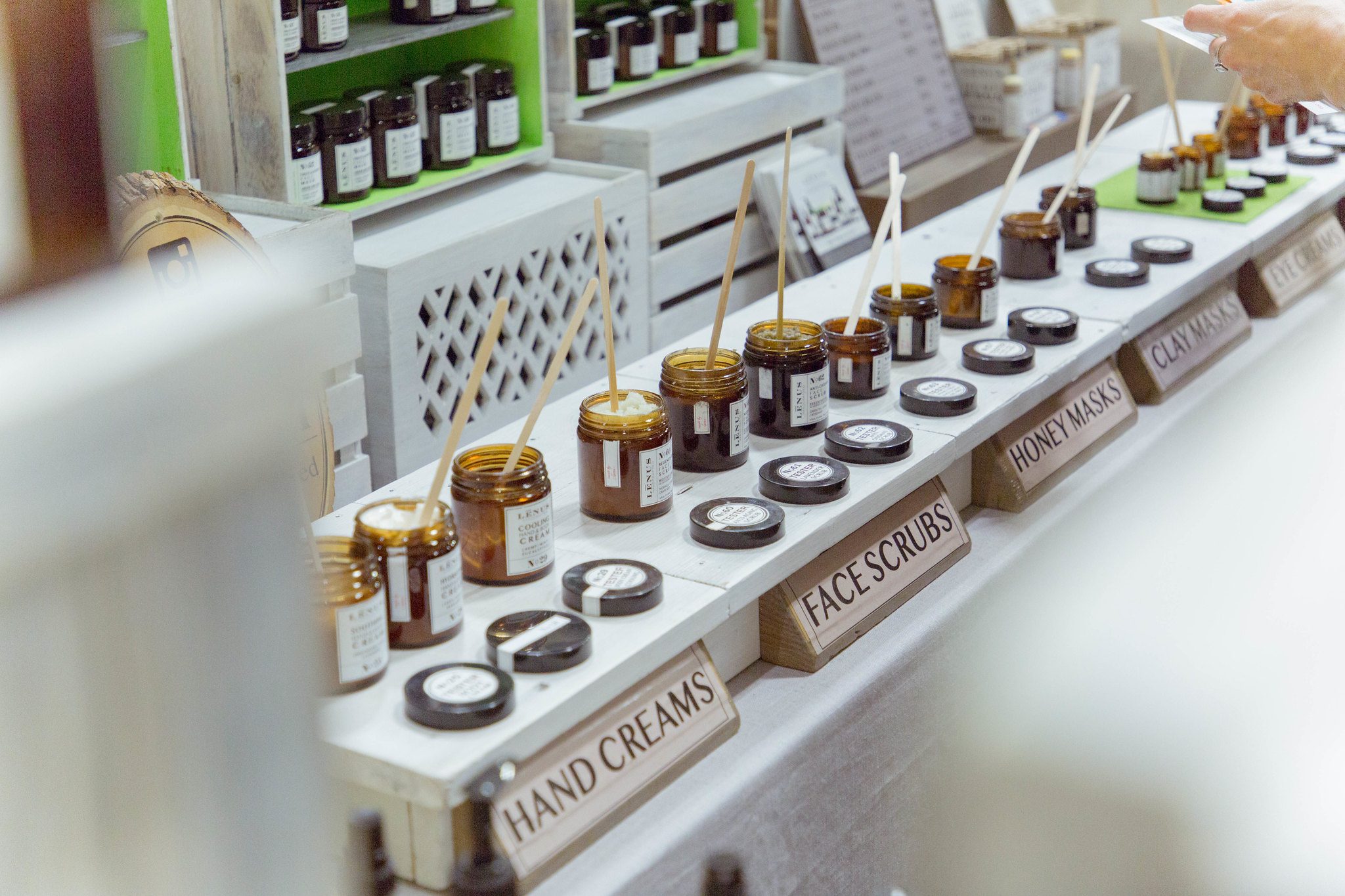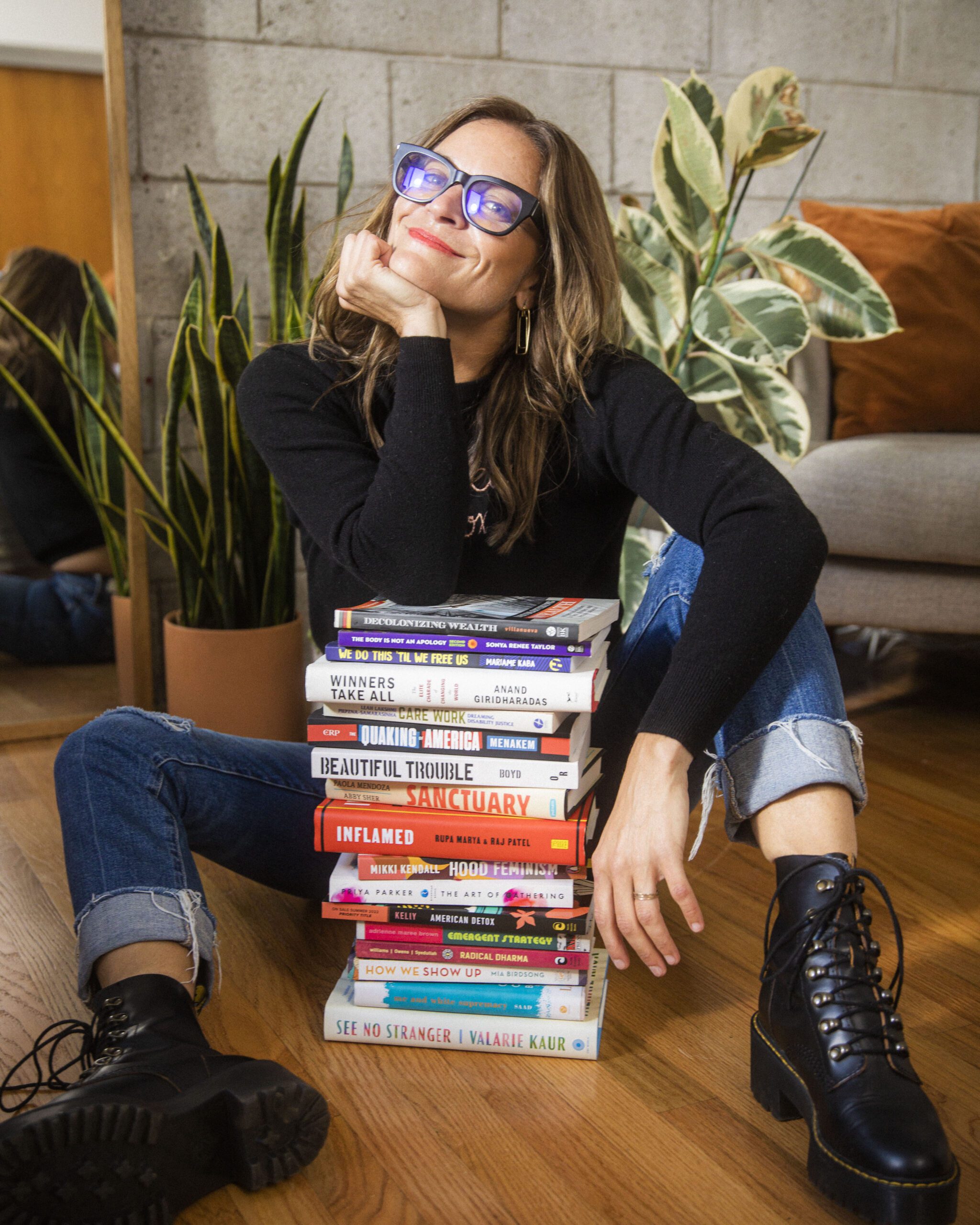American Detox: Waking Up – Wanderlust
If you have come for a quick fix, I’m afraid you’ve come to the wrong place. (I can’t) offer some magic pill, life hack, or wellness protocol for living longer or looking younger. Rather this is about the messy and vulnerable work of transformative change. The kind of change that demands the whole truth and nothing but the truth. The kind of change that becomes impossible to avoid when the world falls apart.
That moment for me was 9/11. I lost my stepfather, my city, and my entire sense of safety and normal. The life that I’d been living and the person that I’d been before 9/11 were destroyed. And I was left to pick up the pieces and make sense of my new reality.
There is no handbook for how to survive the unimaginable. There is only what you have learned and what you are capable of. At the time, I had an all-American, middle-class upbringing at my back and a yoga and meditation practice to keep me sane. It was the latter that saved my ass.
Kerri Kelly at Wanderlust Vermont 2014 by Brittany White
The wellness world had all the answers to my questions. It offered relief from the grief and pain. It promised to make me thinner and more productive. It told me to look on the bright side of my really shitty situation. And before long, I was hooked, aggressively seeking self-help, self-discovery, self-perfection, self-everything. I would hit my mat, stalk organic food, and seek exotic retreats like my life depended on it.
But when I stepped outside of the bliss and safety of my mat, I was confronted with a very different reality. The world outside of my wellness bubble was different. Really different. Everyday families struggling to survive, children going to school hungry, guns ripping apart entire communities, families losing their homes to the mortgage crisis, people denied human rights and dignity because of the color of their skin, their religion, their sexual orientation. Nonstop policing, incarcerating, deporting, bombing.
I began to grapple with why I got to be well when others didn’t. How well-being had somehow become a privilege afforded to people with access and time and money. People like me. Which drove me to the inquiry explored in this book—whether a culture of wellness that refuses to consider the well-being of all is actually making things worse for everyone.
The Myth of Wellness
Wellness—the industry that grew out of self-help and fitness classes and has exploded into everything from yoga to crystals to juice cleanses—promises to make you better, stronger, healthier, and whole. It meets an ever-increasing demand among many Americans to “feel good” and find meaning in a cruel and confusing world. And it’s no wonder. In the face of rising health threats, extreme inequality, endless wars, and our own possible extinction, it makes sense that we would seek relief.
But wellness isn’t just the yearning to be well. It is extreme materialism masquerading as spiritual practice to make us feel good while emptying our wallets. It is the commoditization of political ideas like “self-care” and “empowerment” as something that you can buy. And it is a $4.5 trillion global industry that is servicing the millions of people like me who are desperate to be well.
But while wellness soars, so does inequality.
Inequality has been the purpose of the so-called American Dream for as long as we’ve had one. Colonization, slavery, and capitalism have resulted in a legacy of unequal conditions that runs as deep as well water. A recent study found the US to be the wealthiest among developed nations—and the most unequal. While certain populations are making choices about organic and GMO-free food, the rest of the country is trying to figure out how to feed their families and pay their bills.
The truth is that we—the big we—are not well. Not by a long shot.
I call it the well-being gap: the unequal conditions that determine who gets to be well and who doesn’t. It is a disparity driven not by personal choice but by proximity to power and privilege. And it goes way beyond the affordability or accessibility of wellness products and services. Wherever there is a prevalence of poverty and unemployment, a lack of access to housing and healthcare, people are struggling to survive much less be well. But a well-being gap that leaves many people behind ultimately hurts all of us. It destabilizes our economy, it causes stress that makes us sick, it fuels higher rates of crime and violence, it holds back our children, and it creates an ever deeper divide among neighbors and neighborhoods.
But that’s not the only thing. Everywhere we turn, culture gaslights us with the message that “we’re not good enough.” It says, “Buy this and you will be happy,” “Do this and you will feel beautiful,” “Eat this and you will be healthy,” “Read this and you will be enlightened.” It is a storyline sponsored by a system that profits from our sickness.
 The wellness industry sells us isolation and escapism. It dangles the false promise of perfection and purity. And we are just left more alone, more dissatisfied, and more isolated than ever. Fixating on self-help, self-seeking, self-everything keeps us fending for ourselves, neglecting the suffering of our friends and neighbors, and denying our humanity.
The wellness industry sells us isolation and escapism. It dangles the false promise of perfection and purity. And we are just left more alone, more dissatisfied, and more isolated than ever. Fixating on self-help, self-seeking, self-everything keeps us fending for ourselves, neglecting the suffering of our friends and neighbors, and denying our humanity.
Wellness is not making us well. It’s making us worse. While wellness promises enlightenment, the circumstances of our lived reality tell a different story. The many crises we are facing are exponential—from infectious disease to racial injustice, to extreme income inequality, to accelerating climate change. And while wellness exploits our fears and vulnerabilities, it does nothing to address the systems that got us here in the first place. It blames us for our struggles but refuses to acknowledge what’s at the root of our suffering.
To make things worse, most of today’s wellness industry draws on a lineage of mind-body practices, largely from South Asian and Indigenous cultures, that are often a part of spiritual traditions that employ a holistic and collectivist approach to well-being. Yet these practices have been divorced from their original contexts, distorted, and commodified to accommodate racist capitalist culture. In American Detox I do my best to uncover these truths and how the wellness industry itself has become a weapon of dominant systems to maintain the status quo and distract people from reality. Despite our desperate pursuit, wellness is not making us well. Well-being is a human right, not a privilege. And my well-being is not isolated or separate from yours. That means that true wellness demands that we confront everything that is in the way of our collective well-being.*
* Well-being and wellness are not the same. I define well-being as the state of being well or feeling whole, whereas wellness is the active pursuit of well-being.
No amount of green juice or hybrid cars is going to save the planet. Meditation is not going to undo systemic racism. Ecotourism is not going to solve inequality. But wellness sells us the idea that we can buy our way to well-being. I bought into that myth. I traded in my corporate ambition for wellness purity and realized that it was just more of the same: a constant cycle that keeps us stuck in the status quo and starving for more. And while it is easy to turn away and stay in our gated communities of wellness, we must turn toward the hard-to-look-at truth of our people and planet and demand more of ourselves and one another.
An adapted excerpt from American Detox: The Myth of Wellness and How We Can Truly Heal by Kerri Kelly, published by North Atlantic Books, copyright © 2022. Reprinted by permission of publisher.
—
Kerri Kelly is a community organizer, wellness activist and author of the book American Detox: The Myth of Wellness and How We Can Truly Heal, Kerri is recognized across communities for her work to bridge transformational practice with social justice. She’s been teaching yoga for over 20 years and is known for making waves in the wellness industry by challenging norms, disrupting systems and mobilizing people to act. Her leadership has inspired CTZNWELL, a movement to democratize wellbeing for all and is committed to creating the conditions where everyone can thrive.
Website | Instagram
Comments are closed.